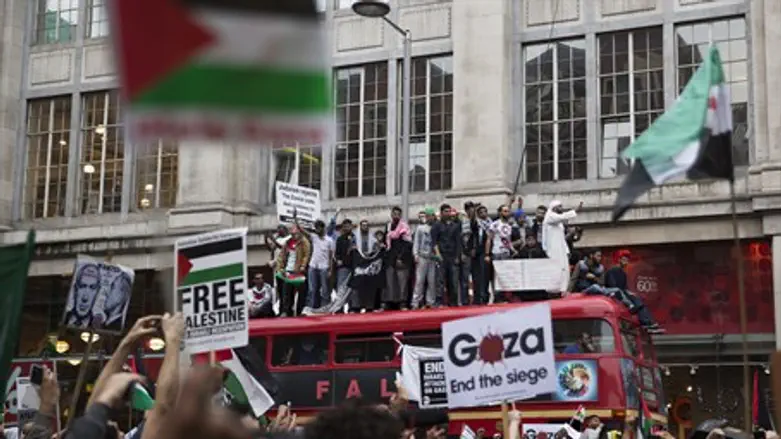
The Jewish community in Cornwall, Britain, expressed anger over the weekend after a local village agreed to reinstate a sign saying “Hitlers Walk”, the BBC reported.
The sign for a park overlooking the village Mevagissey was taken down by the now-defunct Restormel Council in 2005 after complaints that it was inappropriate.
Now, however, Mevagissey Parish Council has ordered a new sign, saying that is what local people call the park, according to the BBC.
The park, located on a sloping site a little smaller than a football pitch at the top of Polkirt Hill, was named in the 1930s after a dictatorial local councillor, who was nicknamed Hitler.
Harvey Kurzfield, of Kehillat Kernow, which represents the Jewish community of Cornwall, said the decision was "outrageous".
Parish councillor John Daniel, who has campaigned for the sign's reinstatement, explained that locals “have known it as Hitlers Walk since the 1930s."
Daniel said it had been "political correctness gone mad" to remove the sign, which does not have an apostrophe.
"The name goes back to a time before the war when whoever was in charge of the park was a bit authoritarian,” he explained.
"I am 80 and I have always known it as Hitlers Walk. All the local people have known it as Hitlers Walk and they wanted it back,” said Daniel.
"It's not offensive, it's just what local people call it," he stressed.
Nevertheless, Kurzfield said he would be writing to the parish council to object.
"I think it's outrageous and completely unfeeling," he said, according to the BBC. "It is unbelievable to stoop to doing something like that.”
He continued, "I would urge Jewish people to boycott the village."
Parish councillor Jade Barron, who backed the sign, said, "We didn't want to offend anyone, it's just always been known as Hitlers Walk.”
"It's a massive part of the village's history and it would be a shame to take that away," added Barron.
Although likely unrelated, the saga comes amid a growing trend of anti-Semitism in Europe in general and in Britain in particular.
The anti-Semitism in Britain took a turn for the worse during Israel’s Operation Protective Edge in Gaza last summer, with thousands taking part in anti-Israel protests. Those demonstrations have included pro-Palestinian Arab rioters vandalizing a Birmingham Tesco store out of rage over a refusal to boycott Israeli products.
In a similar incident, hundreds of demonstrators rioted outside the Kedem store in Manchester, in a series of clashes which culminated in dozens of death threats being hurled at the store's owners.
Recently, Danny Cohen, the BBC’s director of television, said that he was deeply troubled by the anti-Semitism in Europe in general, and in Britain in particular, adding that “I’ve never felt so uncomfortable being a Jew in the UK as I’ve felt in the last 12 months.”
A poll released last month found that almost half of British Jewish people fear they have no long-term future in Britain or Europe, and a quarter of those surveyed said they had considered leaving Britain in the past two years.